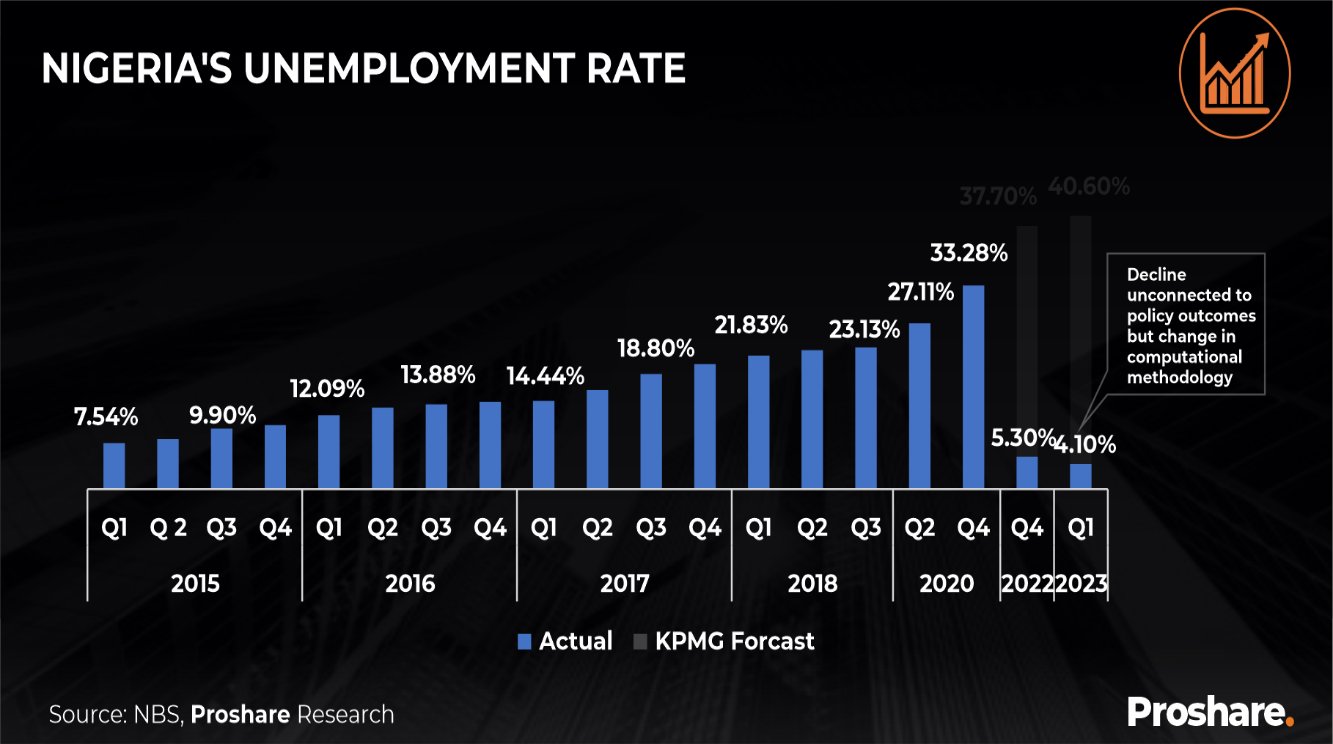Nigeria’s Unemployment Narrative: Perceptions and Reality
- Posted on September 01, 2023
- Featured
- By PETER AGADA
The recent National Bureau of Statistics (NBS), data for Nigeria's unemployment rate for 2023 has continued to stir controversies on how such a miracle happened within a short period and it's clear that the country itself has not gotten over the lingering crisis of unemployment. The data shows that Nigeria's employment rate dropped from 33.3% in 2021 to 4.1% in 2023.
Every year, higher institutions in the country graduate thousands of students but we can still see them searching for jobs even after completing the 1-year mandatory NYSC program.
However, the NBS statistics were not saying the reality as it compared our unemployment rate with developed countries like the United States whose employment rate settles at 3.4%, while the United Kingdom accounts for 4.2% of its unemployment rate. Currently, Nigeria's poverty rate is 60%.

Also, the Nigeria Labour Force Survey (NLFS) shows that the unemployment rate in the country reads 5.3% in Q4 2022, while in Q1 2023 reads 4.1 %. During the first quarter of 2023, Nigeria witnessed a decline in business and economic activities due to the cashless policy, and many jobs were affected, yet the NBS notified that more jobs were created during that period. How true can this be?
With all the wrong calculations which could be visible by looking at how the country operated at that time, the NBS still claims that more jobs were created during that period. However, it was clear that large numbers of people went into becoming PoS agents, but how many of them had the new naira available at that point? We can recall how there were lots of queues in banks to get the new naira note with many crises that emanated as a result of that, yet the NBS still claims jobs were created. It's laughable that a transparent body could come out with such facts that are far from the truth.
Last year, the NBS data read that 63% or 133 million Nigerians were living in abject poverty while inflation pushed an estimated number of four million Nigerians into poverty in the given months of the year. This data was released by the World Bank in June.
So how will Nigeria in such a poor condition and low GDP have outgrown its capacity to handle unemployment?


Be the first to comment!
You must login to comment